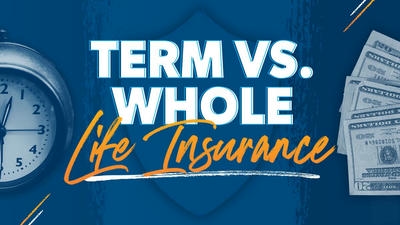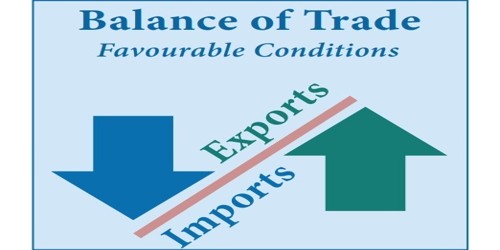
Estate planning is often viewed as a complex and daunting process, typically associated with thoughts of mortality and the final arrangements of our lives. However, it is a crucial component of wealth management and preservation that protects not only your assets but also your loved ones. Effective estate planning ensures that your wealth is distributed according to your wishes, minimizes tax burdens, and provides for your family even after you're gone.
Understanding Estate Planning
At its core, estate planning involves preparing for the distribution of your assets during and after your life. This process ensures that your property, investments, and other significant assets are managed in a way that aligns with your goals and values. Without a proper estate plan, your assets may be subject to legal disputes, unnecessary taxes, and distribution methods that do not reflect your intentions.
The Importance of Estate Planning
- Control Over Asset Distribution
One of the most significant reasons to engage in estate planning is to retain control over how your assets will be distributed after your passing. An estate plan allows you to specify who will inherit your wealth, whether it be family members, friends, charities, or any combination thereof. Without a plan in place, local laws will dictate how your estate is divided, which may not align with your preferences.
- Minimizing Taxes and Fees
Effective estate planning can significantly reduce the taxes and fees associated with transferring your assets. Estate taxes, inheritance taxes, and probate fees can erode your wealth if not carefully managed. By employing various strategies, such as establishing trusts or gifting assets during your lifetime, you can minimize these financial burdens and ensure more of your wealth goes to your beneficiaries.
- Protecting Your Family’s Future
An estate plan helps protect your loved ones by ensuring they are taken care of financially. By designating guardians for minor children and setting up trusts for their benefit, you can provide for their education and upbringing even if you are no longer present. Additionally, an estate plan can mitigate potential conflicts among heirs, fostering family harmony during what can be a challenging time.
- Planning for Incapacity
Estate planning is not just about what happens after death; it also addresses the possibility of incapacity during your lifetime. A comprehensive estate plan includes durable powers of attorney and healthcare proxies, which allow you to appoint trusted individuals to make financial and medical decisions on your behalf if you are unable to do so. This safeguard ensures that your wishes are honored, even when you cannot communicate them.
- Business Continuity
For business owners, estate planning is critical for ensuring the continuity of your business operations after your departure. A well-structured estate plan can outline the transition of ownership and management, safeguarding the business's viability and legacy. This is especially important if your business is a significant part of your wealth.
Key Components of an Estate Plan

Creating an effective estate plan requires careful consideration of various elements. Here are the key components that should be included in your estate planning process:
1. Will
A will is a foundational document in any estate plan. It outlines your wishes regarding the distribution of your assets, appoints executors to carry out those wishes, and names guardians for minor children. A properly drafted will can help expedite the probate process and provide clear instructions for your heirs.
2. Trusts
Trusts are powerful estate planning tools that can help manage and distribute assets while avoiding probate. There are several types of trusts, including:
Revocable Living Trust: Allows you to retain control of your assets during your lifetime and specifies how they will be distributed upon your death.
Irrevocable Trust: Transfers ownership of assets out of your estate, providing protection from creditors and potential tax benefits.
Special Needs Trust: Designed to provide for a beneficiary with disabilities without jeopardizing their eligibility for government benefits.
3. Durable Power of Attorney
A durable power of attorney empowers a designated individual to make financial decisions on your behalf should you become incapacitated. This authority remains in effect even if you are no longer able to manage your affairs, ensuring that your financial matters are handled consistently with your wishes.
4. Healthcare Proxy or Advance Directive
A healthcare proxy allows you to appoint someone to make medical decisions on your behalf if you are unable to do so. An advance directive outlines your preferences regarding medical treatments and interventions, guiding your healthcare providers and loved ones.
5. Beneficiary Designations
Many assets, such as retirement accounts and life insurance policies, pass directly to named beneficiaries outside the probate process. It is essential to regularly review these designations to ensure they align with your current wishes and overall estate plan.
6. Letter of Intent
Although not a legally binding document, a letter of intent can provide valuable guidance to your executor or beneficiaries. It is an opportunity to express your wishes, explain the reasoning behind certain decisions, and offer insights into your values and priorities.
7. Regular Reviews and Updates
Estate planning is not a one-time event. Life circumstances change; marriages, divorces, births, deaths, and changes in financial situations may necessitate updates to your estate plan. Regular reviews ensure that your documents reflect your current wishes and legal requirements.
Strategies for Wealth Preservation Through Estate Planning
To effectively preserve your wealth, consider implementing the following strategies as part of your estate planning process:
1. Gifting During Your Lifetime
One of the simplest ways to reduce the size of your estate and minimize estate taxes is to gift assets to beneficiaries while you are still alive. The IRS allows individuals to gift a certain amount each year without incurring gift taxes, known as the annual exclusion. This strategy not only reduces the size of your estate but also allows you to see the positive impact of your gifts on your loved ones.
2. Establishing Trusts
Trusts can play a critical role in wealth preservation. By placing assets into a trust, you can control how and when your beneficiaries receive their inheritance. Specific types of trusts, such as irrevocable life insurance trusts, can help remove life insurance proceeds from your estate and minimize estate taxes.
3. Utilizing Tax-Loss Harvesting
Tax-loss harvesting involves selling investments that have incurred a loss to offset taxable gains. This strategy can reduce your overall tax burden and protect more of your wealth. For estate planning, consider employing tax-loss harvesting strategies to maximize the transfer of wealth to your heirs.
4. Investing in Life Insurance
Life insurance can be an effective means of wealth preservation, providing liquidity to your estate upon your death. It can help cover estate taxes and other costs, ensuring that your heirs receive the full value of your estate instead of being forced to liquidate assets to pay bills.
5. Incorporating Charitable Giving
Incorporating charitable giving into your estate plan can offer significant tax benefits while achieving philanthropic goals. Donating appreciated assets to charity can help you avoid capital gains taxes while providing a charitable deduction on your income tax return. Additionally, donor-advised funds allow you to maintain control over your charitable giving while enjoying immediate tax benefits.
6. Succession Planning for Business Owners
Business owners should include succession planning in their estate planning efforts. Determining who will take over the business and how it will be valued is essential to avoiding disruptions during the transition process. This can include training successors and outlining a clear plan for ownership transfer.
7. Employing Capital Gains Strategies
Properly managing capital gains is important for wealth preservation, especially for assets held for a long time. Consider strategies such as holding investments longer to benefit from lower long-term capital gains rates or utilizing tax-deferred accounts to minimize immediate tax liabilities.
Common Misconceptions About Estate Planning

Despite its importance, several misconceptions about estate planning may deter individuals from engaging in the process. Here are a few myths to dispel:
1. Estate Planning Is Only for the Wealthy
Many people believe that estate planning is only necessary for the wealthy; however, it is essential for anyone with assets or dependents. Regardless of your financial situation, having an estate plan in place can protect your loved ones and ensure your wishes are honored.
2. Estate Planning Is Only About Death
While estate planning involves decisions made after death, it also incorporates planning for incapacity during your lifetime. It addresses how your affairs will be handled if you become unable to make decisions for yourself.
3. A Will Alone Is Sufficient
Relying solely on a will can lead to complications, including probate and additional taxes. A comprehensive estate plan should include trusts, powers of attorney, healthcare proxies, and other tools to ensure that your wishes are fully addressed.
4. Estate Planning Is a One-Time Process
Estate planning is not a one-time event; it requires regular updates and reviews to remain relevant. Life changes such as marriage, divorce, new children, or changes in financial status necessitate a review of your estate plan.
Conclusion
Estate planning is a vital component of effective wealth management and preservation. By engaging in a comprehensive estate planning process, you can ensure that your assets are distributed according to your wishes, minimize tax burdens, and provide protection for your loved ones. From wills and trusts to durable powers of attorney and healthcare proxies, each element plays a crucial role in safeguarding your legacy.
In an ever-changing financial landscape, it is essential to stay proactive with your estate planning. Regularly reviewing and updating your plan, considering the impact of life events, and consulting with legal and financial professionals are all integral to maintaining a robust estate plan that meets your goals. Prioritizing estate planning today can lead to a secure financial future for you and your heirs, ensuring that your hard work and dedication to building wealth will benefit your loved ones for generations to come.








